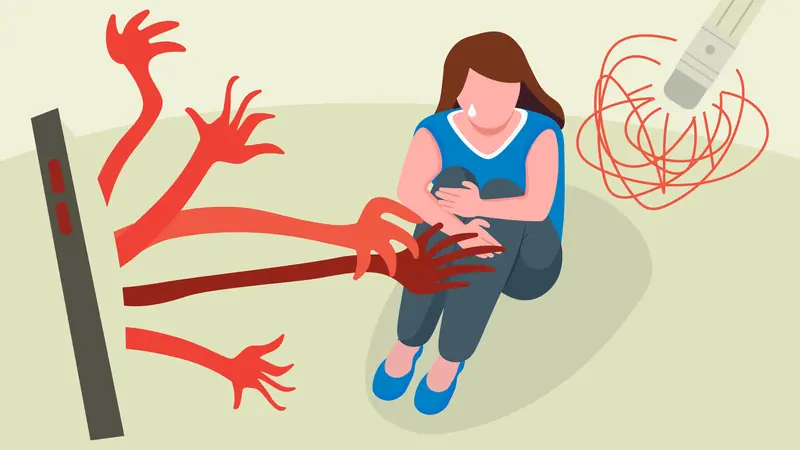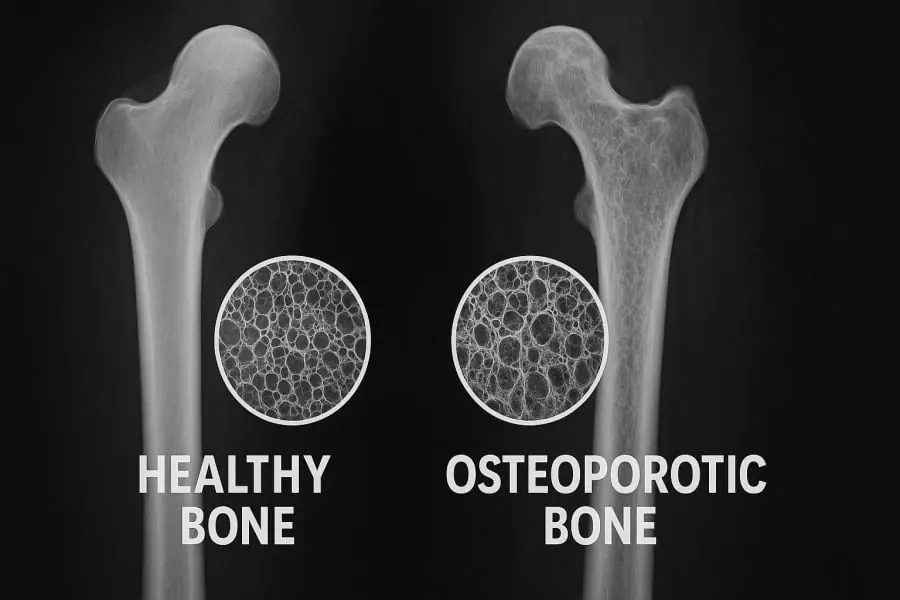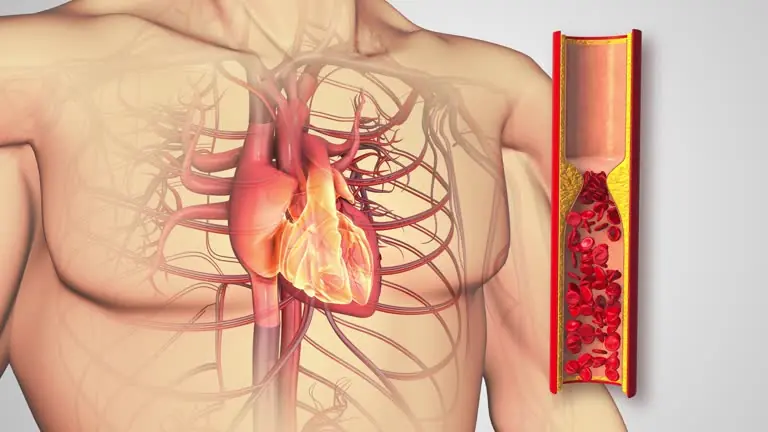
People at Risk of Cancer Often Show 3 Warning Signs in the Neck – Early Checkups Can Save Lives
Cancer is often referred to as a silent killer, largely because it can grow unnoticed for months or even years before obvious symptoms appear. However, the human body does send subtle warning signals, especially in certain areas like the neck, which many people tend to ignore. Experts have increasingly emphasized that certain persistent symptoms in the neck may be early indicators of cancer—especially head, neck, or thyroid cancers. Recognizing these signs early and seeking medical attention can significantly increase the chances of successful treatment.
1. Lumps or Swelling in the Neck
One of the most common and alarming signs of potential cancer is a lump in the neck, particularly if it does not go away after two weeks. These lumps can occur in the lymph nodes, which are small glands that help fight infection. While swollen lymph nodes are often a response to common illnesses like colds or throat infections, persistent or unusually large lumps should not be ignored.
In some cases, these may indicate lymphoma, thyroid cancer, or metastatic cancer that has spread from other areas like the lungs, breasts, or mouth. Lumps related to cancer are usually painless, firm, and progressively grow larger. If you find a new lump in your neck that doesn’t shrink or go away, it’s time to see a doctor immediately.
2. Persistent Hoarseness or Voice Changes
Another sign that often goes unnoticed is hoarseness or a change in voice. While a sore throat or overuse of the voice can cause temporary hoarseness, if the symptom persists for more than two weeks, it could be a red flag. The neck houses the larynx (voice box), and any tumors pressing on or affecting the vocal cords can alter the sound of your voice.
In some cases, cancers of the thyroid, throat, or larynx may begin with subtle changes in voice that gradually worsen over time. Many people mistake this for a lingering cold or seasonal allergy, delaying medical attention. If hoarseness is accompanied by difficulty swallowing or a persistent sore throat, it’s even more critical to get checked.
3. Difficulty Swallowing or a Constant Feeling of a Lump in the Throat
A less obvious but equally concerning symptom is trouble swallowing or a constant sensation of something stuck in the throat. This is medically known as dysphagia and can be caused by growths or tumors in the esophagus, throat, or thyroid that block or narrow the passage of food.
People with this symptom may start to avoid eating solid food, experience unintentional weight loss, or even feel pain when swallowing. In many instances, this is one of the first signs of esophageal or throat cancer. Unfortunately, by the time it’s taken seriously, the cancer may already be in an advanced stage. Early detection and treatment can prevent the condition from worsening and potentially save a life.
Don’t Ignore the Signs
Many people believe that cancer only affects older individuals or those with a family history. However, lifestyle factors such as smoking, alcohol consumption, poor diet, and even prolonged exposure to viruses like HPV can increase risk—regardless of age. That’s why it’s essential to pay attention to your body and not dismiss ongoing symptoms as minor issues.
If you or someone you know is experiencing any of the three symptoms mentioned above—a persistent neck lump, hoarseness, or difficulty swallowing—seek medical advice as soon as possible. Modern medicine offers many treatment options, but early diagnosis remains the most powerful tool in the fight against cancer.
News in the same category


Young Woman Suffers from Back Pain and Sleepless Nights, X-Ray Reveals 'Honeycomb Bones' – All Caused by a Popular Beverage

Study Finds: The Body Remembers Trauma Even When the Mind Has Moved On

Increasing Protein Intake May Help Slow Alzheimer’s Progression, New Study Suggests

Eliminating One Food From Your Diet May Significantly Lower Your Colon Cancer Risk, Scientists Say

Oatmeal and Guava: A Natural Remedy for Leg Cramps, Diabetes, and High Blood Pressure

Ancient Herbal Infusion to Cleanse Your Kidneys and Eliminate Toxins

The Hidden Culprits Behind Osteoporosis: 3 Common Drinks You Should Watch Out For

6 Warning Signs You Shouldn’t Ignore – Early Indicators of Cancer

Doctors Reveal the Reasons Why More and More Young People Are Getting Cancer

10 Natural Remedies for Bronchitis to Ease Painful Cough Attacks

Nature’s Top Lymphatic Cleansers: Detox & Strengthen Immunity Naturally

10 Warning Signs Your Body Might Be Giving You About Clogged Arteries

Cleanse Your Liver Naturally with This Powerful Juice: Beetroot, Apple, Carrot, Orange & Ginger

The Surprising Benefits of Combining Eggs and Coffee: A Nutritious and Energizing Pair

Ginger Lemon Juice: A Potent Elixir for Health and Wellness

Leg Pain, Rheumatism, Varicose Veins, Arthritis – Natural Remedy with Cloves & Garlic! 🧄🌿

6 Dementia Symptoms You Might Overlook at First

10 Snoring Solutions Your Partner Will Be Thankful For
News Post

One Day, This Teacher Couldn't Work Due to Pain — Now She's a Single Mom Fighting to Stay Alive for Her Daughter

The Meaning Behind Pope Leo XIV's Name Explained - Details

6 Types of Pain That Signal Cancer Cells May Have Reached the Final Stage

President Donald Trump Reacts to the Appointment of the New Pope Leo XIV – Details

Young Woman Suffers from Back Pain and Sleepless Nights, X-Ray Reveals 'Honeycomb Bones' – All Caused by a Popular Beverage

Pope Leo XIV's Real Attitude Toward Donald Trump Uncovered — His Take on the American President

Study Finds: The Body Remembers Trauma Even When the Mind Has Moved On

Increasing Protein Intake May Help Slow Alzheimer’s Progression, New Study Suggests

THIS MAN SAT ON THE FLOOR AND READ ALL DAY—WHEN I ASKED WHY, HIS ANSWER BROKE ME

The Bride Fainted at Her Wedding Because of the Words of an Unknown Girl

Eliminating One Food From Your Diet May Significantly Lower Your Colon Cancer Risk, Scientists Say

I FOUND A LONE PUPPY IN THE TRASH—AND THEN THE CAMERA CAUGHT WHAT I COULDN’T EXPLAIN

WE TOOK OUR DOG FOR ONE LAST WALK—BUT THEN HE DID SOMETHING WE’LL NEVER FORGET IN A LIFETIME

I CHOSE FARM LIFE AS A SINGLE MOM—AND TODAY, SOMETHING HAPPENED THAT MADE ME STOP IN MY TRACKS

Princess Catherine Turns Heads in Waist-Cinching Polka Dot Dress

Two Cardinals Who Nearly Became Pope Instead of Leo XIV – One Has a Surprising Hobby

Entitled Dog Owner Made the Airport Hell for Everyone – She Deserved What I Did at the Gate

Unleash the Power of Ginger and Aloe Vera: A Natural Antibacterial powerhouse
